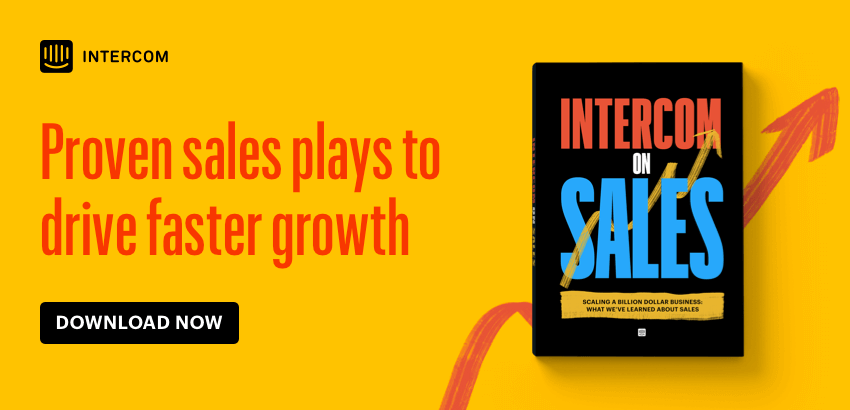How to create personalized sales demos at scale
As salespeople, it goes without saying that we want to make the process of getting started with our product or service as simple as possible.
It’s also critical that we ensure our sales process aligns with a customer’s preferred buying process. At Intercom, we have found that that rarely looks exactly the same for each type of customer. In my role at Intercom, I work with emerging businesses and start-ups whose growth depends on their speed and adaptability.
“A lengthy discovery call and highly tailored demo sometimes felt too unwieldy”
These companies evaluate software quickly, and they don’t care for long, drawn-out sales cycles. There are no procurement departments to navigate and sign-off rarely involves multiple decision makers. For these prospects, it became apparent that the traditional process of a lengthy discovery call and highly tailored demo sometimes felt too unwieldy.
Scaling up our demos
We wanted to bring velocity to our sales process, while still creating the powerful, personal connection a demo offers, so we decided to introduce carefully crafted group demos.
This allowed us to cater to a small number of similarly sized companies at once, while expediting the evaluation period for these target prospects.
Every week we run a live group demo for no more than 10 prospects, and the positive response has been telling. “Loved it,” wrote one attendee. “You already gave me some great ideas with the different types of onboarding messages, networking etc…Definitely interested in future sessions to spark more ideas.” And as another attendee put it: “You seemed so passionate about your product I had to subscribe :)”
“Tailor your content to their needs, making sure it will resonate with your audience”
We’ve been running these group demos for a few months now and have been refining and iterating on our learnings as we have gone along.
Here are some of our key tips for running scaled demos.
- First, have a great demo tool in place. We use both Livestorm and Zoom, which facilitates questions and polls and allows us to share our slides with ease. You want a tool that makes the process seamless from demo sign-up to demo follow-up.
- Make sure you know what your prospects are interested in seeing. We collect this information when they sign-up and also ask the group at the start of the session. That way, you can tailor your content to their needs, making sure it will resonate with your audience.
- Keep the demos short and sweet. We aim to run our sessions within 30 minutes. This makes it easy for prospects to fit the session into their day.
Keeping it personal
The benefits of this approach have been obvious. For one thing, it scales nicely – we are able to offer an evaluation demo to multiple leads at once, while keeping the content of each demo relevant to each prospect. We can spend more time on areas that out audience have signalled to be the most interesting to them when they sign-up.
“These group demos maintain a sense of a personal connection, which is crucial for us”
Furthermore, each prospect becomes involved in a broader discussion about the potential uses of our product, learning about other potential use cases through the questions asked by similarly sized companies. That can open their eyes to the multitude of ways they can grow and expand with Intercom. Indeed, we often see attendees sign-up to trial another Intercom product after attending a session, beyond the product they had initially enquired about.
Above all, these group demos maintain a sense of a personal connection, which is crucial for us. People buy from people. For our audience, seeing our faces on their screen, immediately answering their questions, lends credibility to their decision to trial Intercom.








